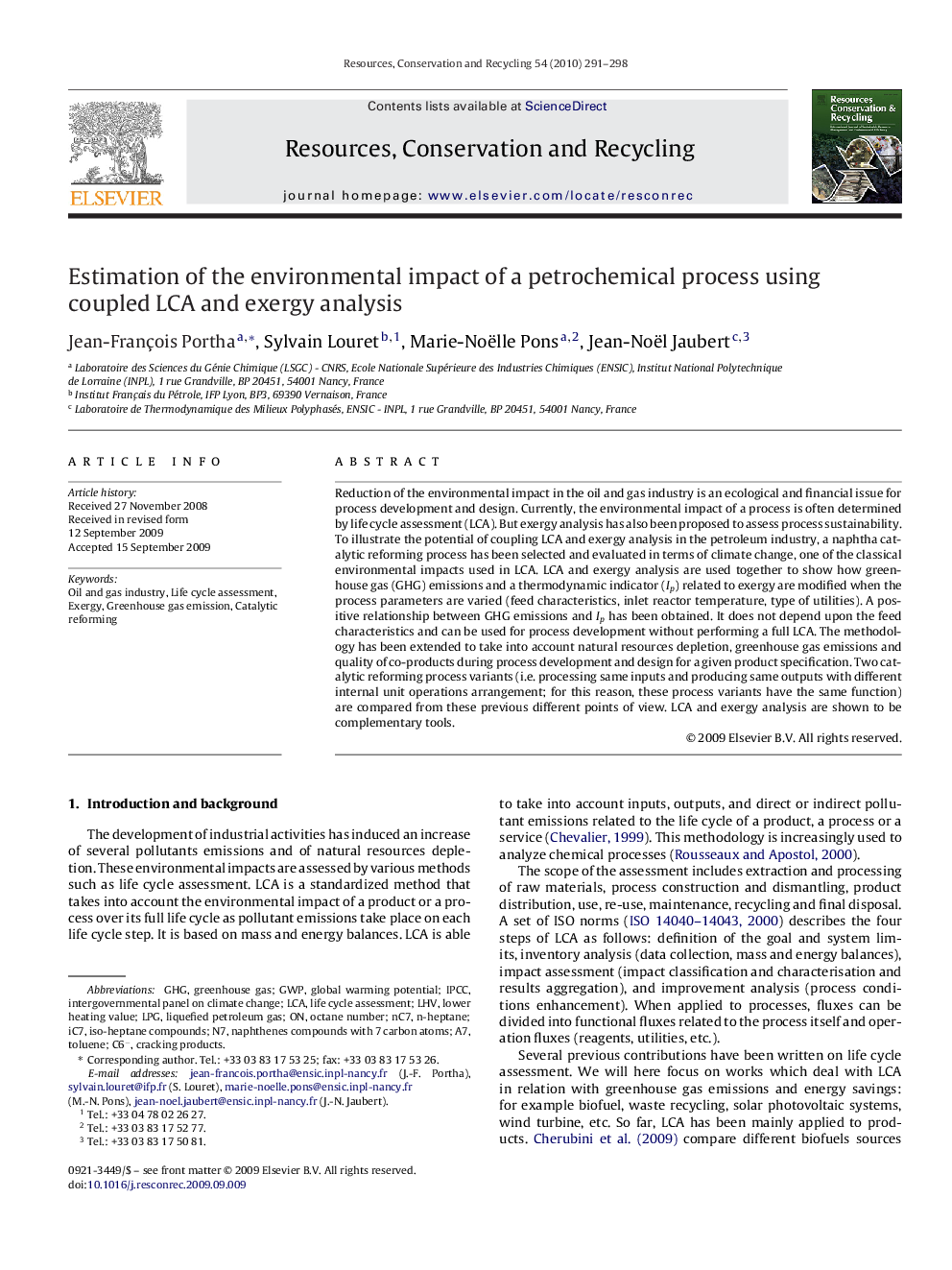| Article ID | Journal | Published Year | Pages | File Type |
|---|---|---|---|---|
| 1063846 | Resources, Conservation and Recycling | 2010 | 8 Pages |
Reduction of the environmental impact in the oil and gas industry is an ecological and financial issue for process development and design. Currently, the environmental impact of a process is often determined by life cycle assessment (LCA). But exergy analysis has also been proposed to assess process sustainability. To illustrate the potential of coupling LCA and exergy analysis in the petroleum industry, a naphtha catalytic reforming process has been selected and evaluated in terms of climate change, one of the classical environmental impacts used in LCA. LCA and exergy analysis are used together to show how greenhouse gas (GHG) emissions and a thermodynamic indicator (Ip) related to exergy are modified when the process parameters are varied (feed characteristics, inlet reactor temperature, type of utilities). A positive relationship between GHG emissions and Ip has been obtained. It does not depend upon the feed characteristics and can be used for process development without performing a full LCA. The methodology has been extended to take into account natural resources depletion, greenhouse gas emissions and quality of co-products during process development and design for a given product specification. Two catalytic reforming process variants (i.e. processing same inputs and producing same outputs with different internal unit operations arrangement; for this reason, these process variants have the same function) are compared from these previous different points of view. LCA and exergy analysis are shown to be complementary tools.
